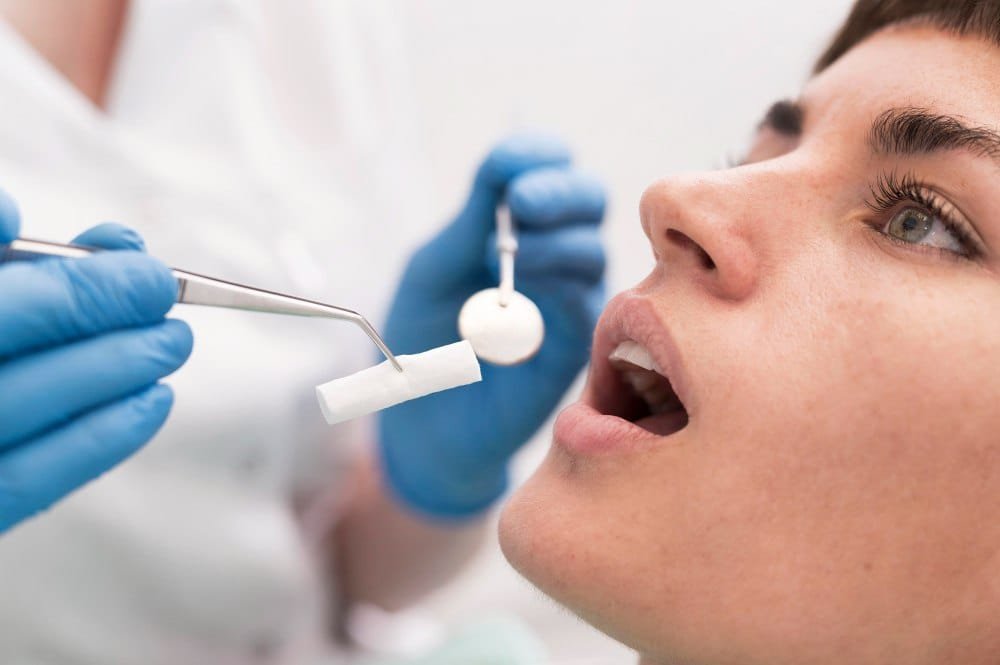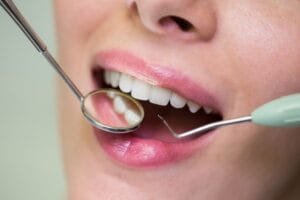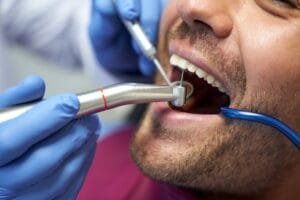Why Regular Dental Cleaning Matters
Keeping your smile bright and your gums healthy isn’t just about aesthetics—it’s a cornerstone of overall wellness. Many underestimate the role of a proper dental cleaning schedule, yet regular cleanings help prevent cavities, gum disease, and even systemic conditions like heart disease.
The connection between oral health and overall health
Research by the American Dental Association (ADA) shows that oral health is deeply connected to cardiovascular and metabolic health. Bacteria from gum infections can enter your bloodstream, affecting other organs. That’s why maintaining a consistent cleaning routine is about more than just fresh breath—it’s about whole-body wellness.
How plaque and tartar buildup affect your smile
Even with daily brushing, plaque can harden into tartar in just a few days. Once that happens, only professional tools can remove it. Skipping regular cleanings allows tartar to accumulate, leading to tooth discoloration, bad breath, and gingivitis.
Understanding the Importance of a Proper Dental Cleaning Schedule
What exactly happens during a professional dental cleaning?
A dental cleaning, also called prophylaxis, involves plaque and tartar removal using specialized instruments. Hygienists also polish teeth, apply fluoride, and check for early signs of cavities or gum disease. This preventive approach saves you from costly dental treatments later.
Key benefits of maintaining a consistent dental cleaning routine
-
Prevents gum disease and tooth decay.
-
Helps detect oral cancer early.
-
Reduces risk of bad breath.
-
Strengthens enamel and brightens your smile.
How Often Should You Get Your Teeth Cleaned?
The general rule: Every six months, is it always true?
The six-month guideline has long been the gold standard. However, new evidence suggests that the optimal dental cleaning schedule can vary depending on your oral health, habits, and risk factors.
Personalized cleaning schedules: Based on lifestyle and health
Not everyone fits the “twice-a-year” rule.
-
Smokers and coffee drinkers: Stains and plaque form faster, requiring cleanings every 3–4 months.
-
Diabetic patients and those with gum disease: These individuals benefit from quarterly cleanings.
-
Children and teens: Regular six-month cleanings help monitor tooth development.
-
Adults with excellent oral health: Cleanings every 9–12 months may suffice with dentist approval.
Factors That Influence Your Dental Cleaning Schedule
Your personal dental cleaning schedule depends on multiple variables:
-
Diet: High-sugar and acidic foods accelerate plaque formation.
-
Oral hygiene habits: Brushing twice daily and flossing reduce the need for frequent cleanings.
-
Genetics: Some people are predisposed to tartar buildup or gum inflammation.
-
Health conditions: Medications that cause dry mouth can increase plaque accumulation.
Professional vs. At-Home Cleaning: Knowing the Difference
While brushing and flossing are essential, they cannot remove hardened tartar.
Professional cleanings use ultrasonic scalers and polishing tools that reach below the gum line. Home care maintains cleanliness, but professional cleanings prevent long-term damage.
How to Maintain Oral Health Between Professional Cleanings
-
Brush with fluoride toothpaste twice a day.
-
Floss daily, ideally before bedtime.
-
Use antimicrobial mouthwash.
-
Avoid smoking and limit coffee, wine, and sugary foods.
-
Replace your toothbrush every 3 months.
Warning Signs That You’re Overdue for a Dental Cleaning
-
Persistent bad breath.
-
Yellow or brown tartar near the gum line.
-
Gum bleeding or swelling.
-
Tooth sensitivity.
-
Visible buildup even after brushing.
Ignoring these signs can lead to gingivitis and even tooth loss.
Cost and Insurance Coverage for Dental Cleanings
In the U.K., a standard cleaning costs between £60–£160, depending on the clinic.
Most dental insurance plans fully cover preventive cleanings twice a year, making it affordable and wise to stay consistent.
Common Myths About the Dental Cleaning Schedule
Myth 1: “I brush twice a day, so I don’t need professional cleanings.”
➡️ Fact: Brushing removes surface plaque, but not tartar or bacteria below the gum line.
Myth 2: “Dental cleanings damage enamel.”
➡️ Fact: Professional cleaning actually strengthens enamel by removing harmful bacteria and applying fluoride.
Frequently Asked Questions (FAQs)
1. Is it okay to get my teeth cleaned every three months?
Yes, especially if you smoke, have gum disease, or high tartar buildup.
2. How long does a dental cleaning take?
Typically 30–60 minutes, depending on tartar levels and oral condition.
3. Can dental cleaning whiten my teeth?
It removes surface stains, but for deeper whitening, consider professional bleaching.
4. Is dental cleaning painful?
It shouldn’t be painful; slight sensitivity may occur if you haven’t had a cleaning recently.
5. Can I eat after dental cleaning?
Yes, but avoid staining foods like coffee or wine for 24 hours.
6. What happens if I skip dental cleanings for a year?
Plaque hardens into tartar, increasing your risk of gum disease and decay.
Summary
Your dental cleaning schedule should be personalized, not generalized. Most people benefit from twice-yearly cleanings, but your dentist might recommend more frequent visits if you’re at higher risk. Remember, preventive care saves money, protects your smile, and contributes to your overall health.






